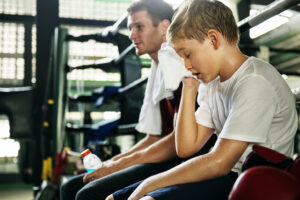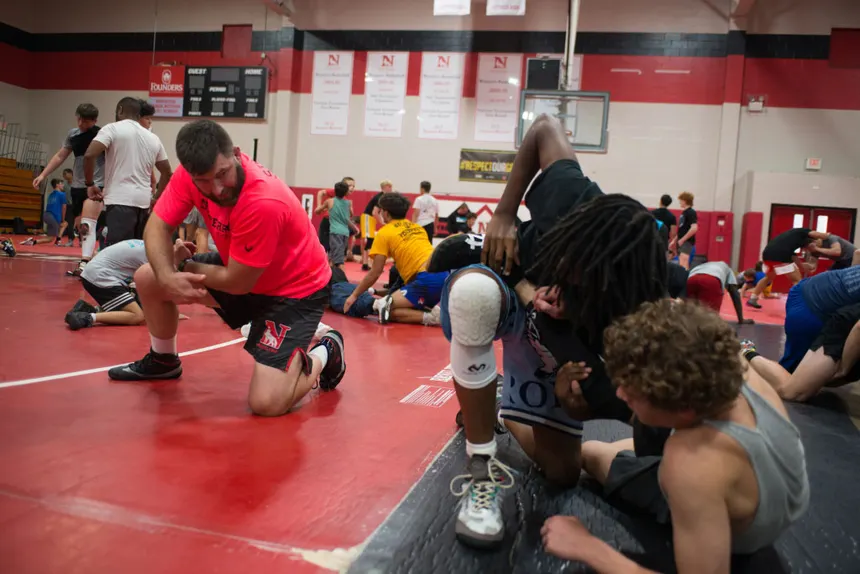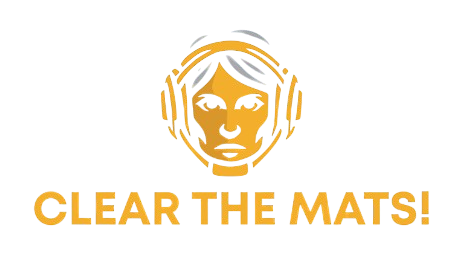
Is Your Wrestler Burning Out? 5 Warning Signs Parents Shouldn’t Ignore
April 23, 2025
The crowd roaring for your wrestler to motivate them to take down their opponent and get the satisfaction of victory is no doubt an incredibly amusing experience. It teaches them discipline, to stay resilient, and instills strong work ethics. But the same sport can also take a toll on their physical and mental health, causing a great deal of burnout. According to Good Morning America, injuries, overtraining, and burnout are increasingly contributing to a high dropout rate in youth sports. And this is where parents should show extra care.
Burnout is a state of emotional, physical, and mental tiredness that excessive and prolonged stress causes. Your upcoming wrestler can feel overwhelmed, and it can emerge in a variety of ways, affecting their performance, well-being, and overall interest in the matches. When they return from practices or big tournaments, parents should observe their level of activity as they play a crucial role in identifying the early warning signs and take the necessary measures before something major occurs.
Do you want your wrestler to keep making you, their coaches proud? Then, here we are with 5 warning signs that you shouldn’t ignore.
5 Warning Signs You Shouldn’t Ignore
Sudden and Continuous Lack Of Energy
Can you recall those days when your child was ready before you to reach the practice on time, recounted their matches, and showed everyone the medals they had won? And today, you fail to witness that enthusiasm in your child; well, that is the first sign. You will notice that they don’t remind you to take them to the venue, miss practices, and lack interest when anyone around discusses the sport. Don’t assume that it’s just a phase because that’s your kid’s exhaustion talking to you.
Therefore, focus on how they complain. Are their statements about specific issues, like a challenging drill or an opponent? Or are they expressing negativity towards the entire wrestling experience? Do they seem unhappy? Is the support consuming their soul?, leaving them tired and exhausted? Don’t ignore the signs and look into it.
Physical Symptoms
Burnout not only affects the mind, but your child’s physical well-being too. You might observe them frequently getting ill in the form of catching colds, having the flu, or dealing with stomachaches. They might approach you to complain about their continuous fatigue, which is also not leaving despite getting proper sleep. In this situation, lingering headaches, muscle soreness, and a lack of hunger indicate burnout.
Hence, if your child is doing the same even when they are not training, that is certainly burnout. Take them seriously and not as excuses.

Performance Graph Going Down
Not every performance comes out as a good one, and this is common with almost every athlete in all sports. However, if your wrestler’s performance graph is going down without any improvements paired with frustration and self-doubt, it is a clear sign of burnout. You may witness them struggle with executing the moves that they were famous for doing, and losing their titles, leading to extreme disappointment with their quality of performance.
The downward graph can be due to a lack of mental clarity, focus, and energy that they needed to win, caused by burnout. This can result in a negative cycle, empowering their disengagement. So, focus on their behaviour to learn whether it’s agitation, particular mistakes, or they feel humiliated for not meeting expectations.
Emotional Outbursts
Burnout can affect your young champion emotionally, impacting their social interactions as well. You might notice that they avoid going out with their friends, usually after they come home from practice, experience mood swings, get angry over small things, and prefer to remain alone.
These sudden emotional outbursts are often because of feeling overwhelmed. The constant pressure at the back of their mind, how their coach and you expect them to bring the trophy. They feel as if they are always on a rollercoaster, and they just can’t afford to let anyone down. Hence, if you come across them being too loud or argumentative, it’s important for you as a parent to sit down with them, addressing what’s bothering them with empathy and a composed mind.
Expressing Feelings
If your wrestler directly expresses their feeling that they are tired, and so many hopes overwhelm and trap them, you should be glad that your child came to you for help. For instance, they can say,” After tomorrow’s match, I can finally breathe”, or “I feel like it’s forceful, I don’t even like to show up anymore.” Listen to their words, the child is the same who has always had wrestling on their mind, and now they are actually expressing this.
Therefore, create a safe space for your child so they don’t struggle in telling you what’s bothering them, but can be straight up honest with you. Avoid pushing them to continue wrestling when they are truly not happy, as that can lead to long-term negative consequences.
What Can Parents Do?
Instead of motivating them to appear for matches, as a parent, you can
- Consider talking to their coach to reduce their coaching intensity.
- Send your child on a vacation.
- Give them a healthy training atmosphere so that they can restore their balance and interest in the game they loved so much.
Conclusion
You need to remember that your child’s health and stability hold more value than those medals and trophies. Therefore, you must recognize these 5 signs, and if you want to know how you can encourage them, then feel free to check Wrestler Mom.
Our Products
Popular Posts
-
 The Silent MVP — How Wrestling Moms Keep the Season Running Smoothly
The Silent MVP — How Wrestling Moms Keep the Season Running Smoothly -
 What to Pack in Your Wrestler’s Tournament Bag - So You Don’t Forget Anything Important
What to Pack in Your Wrestler’s Tournament Bag - So You Don’t Forget Anything Important -
 A Mat-Side Survival Guide for Wrestling Parents (Snacks, Seats, and Sanity)
A Mat-Side Survival Guide for Wrestling Parents (Snacks, Seats, and Sanity) -
 Raising Graceful Champions: Wrestler Moms can Teach Young Wrestlers Good Sportsmanship
Raising Graceful Champions: Wrestler Moms can Teach Young Wrestlers Good Sportsmanship -
 Wrestling on a Budget: How Parents Can Save Big on Gear and Travel
Wrestling on a Budget: How Parents Can Save Big on Gear and Travel -
 Should Your Wrestler Do Off-Season Camps? A Parent’s Guide To Making The Call
Should Your Wrestler Do Off-Season Camps? A Parent’s Guide To Making The Call -
 Hydration Hacks — Keeping Wrestlers Fueled Without Overdoing It
Hydration Hacks — Keeping Wrestlers Fueled Without Overdoing It -
 Why Wrestling Builds Grit And How to Encourage It at Home.
Why Wrestling Builds Grit And How to Encourage It at Home.









